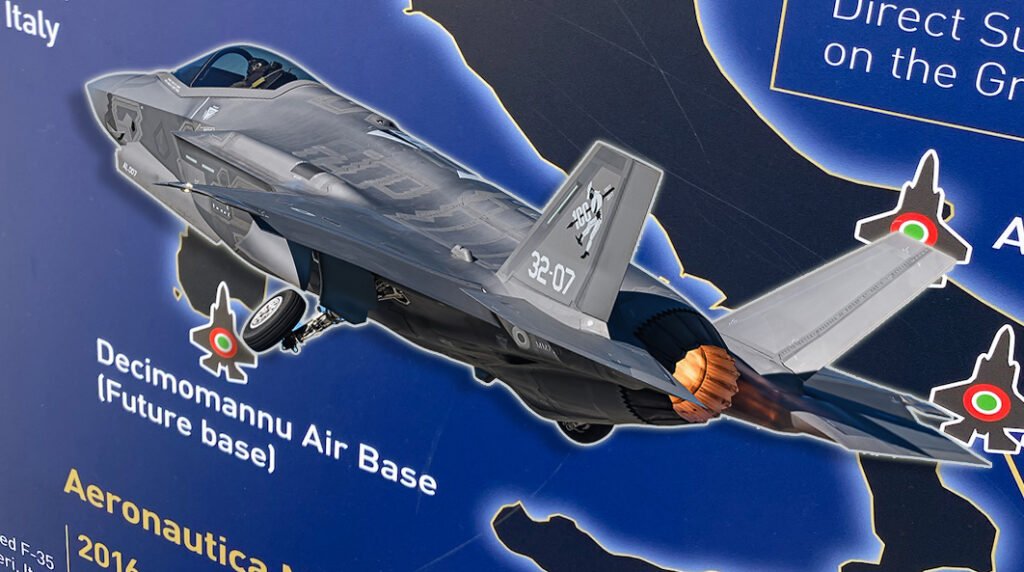[ad_1]
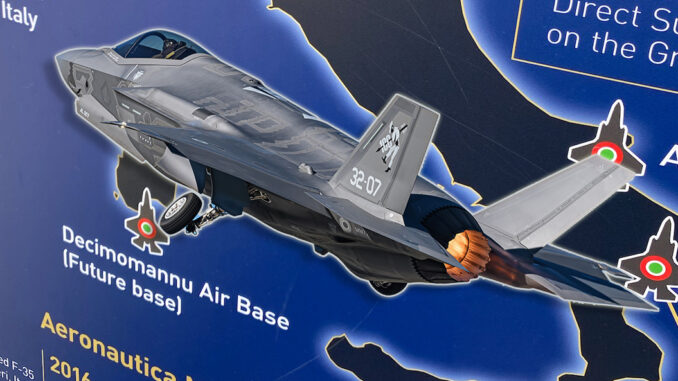
The 100th Anniversary of the Italian Air Force provided an opportunity for an update on the Italian participation in the F-35 program.
The F-35 is no longer a taboo in Italy. After years of ostracism, widespread criticism and a subsequent “low profile” in the communication strategy around the Lightning II program by the Italian MOD, the gradual acceptance of the aircraft selected to replace the Tornado and AMX (along with the AV-8B+ Harrier II fleet of the Navy) by the public opinion and the subsequent drop from the interests of those parties who had made of the fight against the American stealth aircraft one of the cornerstones of their political agenda, has allowed the Italian Air Force to be less “shy” and much more “vocal” about its most advanced combat aircraft.
Between 2018 and 2019, about two years after the first stealth jets had been (almost secretly) delivered to the service, the first significant details about the F-35 and its progress (including the Initial Operational Capability or the first deployment under NATO command) started to be officially released.
In 2020, the images of the ItAF F-35A and B flying together in Beast Mode for the first time were published on the Italian Air Force website and, in 2022, an F-35 in Beast Mode (an Italian Beast Mode considered that the aircraft couldn’t carry any AAMs – Air to Air Missiles – on the outer pylons) appeared on the front cover of the official calendar of the Aeronautica Militare.
And, in 2023, the 5th generation aircraft played a starring role in the celebrations of the 100th anniversary of the Italian Air Force, held in Rome, on Mar. 28, 2023. Not only did the aircraft take part in the “Formazione 100” that drew a giant 100 in the sky over Italy’s capital city, but the Lightning II was also among the highlights of the “Air Force Experience”, an exposition in Piazza del Popolo, open to the public from March 24 to 29, with entertaining events, promotional stands, simulators and also some aircraft on static display, including an F-35 mock up, the one that has most attracted public interest.
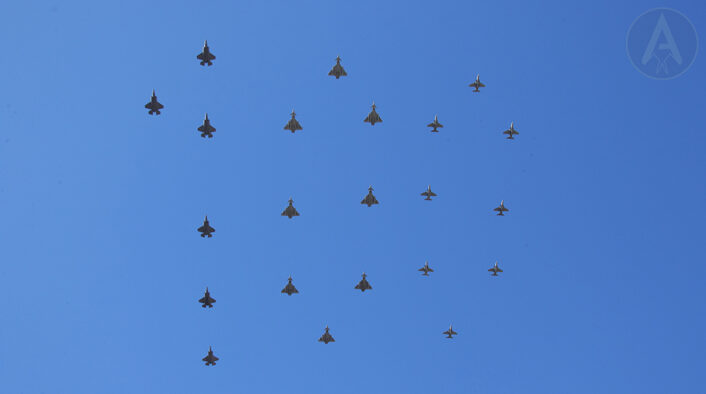
The Centenary also provided an opportunity to have an update on the Italian F-35 by Lockheed Martin. In a meeting with the media held in Rome, Jonathan Hoyle, Chief Executive Europe, and Randy Howard, Vice President of Global Pursuits, talked about the company’s various programs and partnerships in Italy.
Dealing with the F-35, the company shared some key stats. First of all, out of the 90 aircraft currently on order (60 F-35A and 30 F-35B jets), 23 aircraft (17 F-35A and 6 F-35B jets) have been delivered to date. The Italian F-35 fleet has logged a total of 16,674 flight hours; 62 pilots and 536 maintainers have been trained on the Lightning II aircraft. The Italian Air Force FOC (Final Operational Capability) is planned for December 2023, while the sea-based IOC for the Italian Navy F-35Bs is expected in December 2024.
The Italian F-35 bases are Amendola (32° Stormo), Ghedi (6° Stormo), Grottaglie (Italian Navy component – that will also operate from the Cavour aircraft carrier) and Cameri, home of the FACO (Final Assembly and Check Out). While LM couldn’t comment on the recent “request” by the Italian Air Force Chief of Staff Gen. Luca Goretti to restore original F-35 quota (131 examples instead of 90), something interesting that emerged during the media breakfast is the fact that the Italian Air Force is planning to add a third base in addition to Ghedi and Amendola: Decimomannu, in Sardinia.
The new base at “Deci” had in fact been unveiled by one of the exhibition panels located next to the Lightning mock up on display at the “Air Force Experience”: the Fast Facts panel had the text “Future Base” written on Decimomannu Air Base.
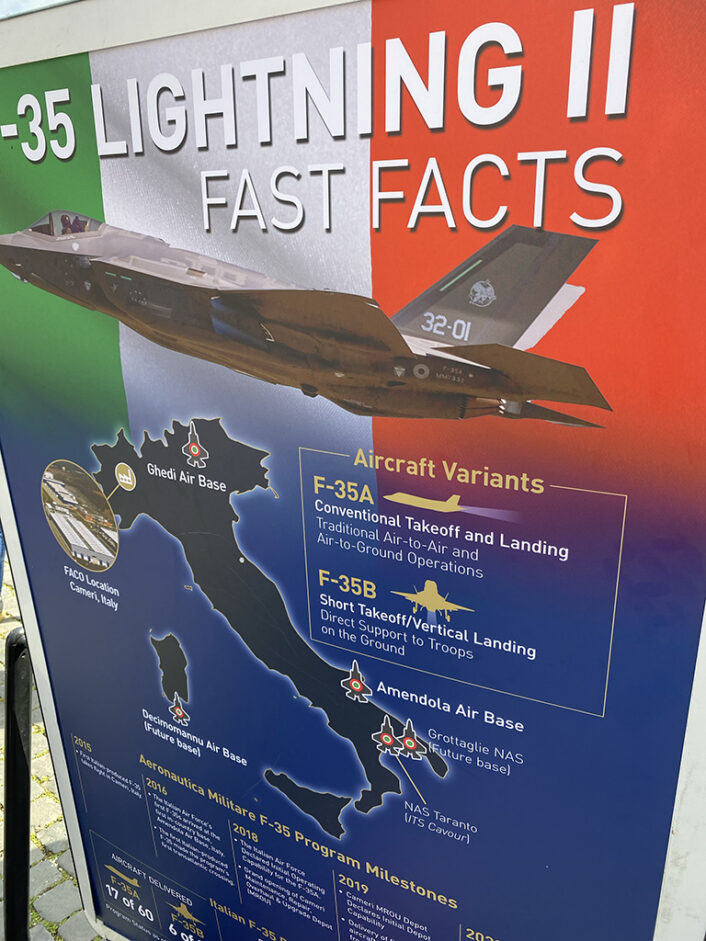
In the same hearing at the Defense Commission of the Camera dei Deputati (lower house of Italian parliament), Gen. Goretti highlighted the need for horizontal dispersion as one of the Lessons Learned from the Ukrainian conflict: using increasingly technologically advanced weapon systems, the enemy can strike in the entire depth of the operational area, overcoming geographical borders and orographic obstacles. With this awareness, the survival of the nerve centers of the military and critical infrastructures must be achieved with an anti-missile defense capability and a modern reconsideration of the concept of dispersion over the territory. “As far as my Armed Force is concerned, in addition to a marked acceleration in the recovery of the missile capability lost in the past, I intend to reflect on the distribution of the material and fuel storage depots, the Command and Control nodes and naturally on the location of the airbases”, Goretti said.
Basing an F-35 unit at Deci, in Sardinia, where the RSSTA (Reparto Sperimentale e di Standardizzazione Tiro Aereo – the Air Gunnery Standardization and Experimentation Unit) is headquartered, would make a lot of sense: the base is far from busy airports and congested airspaces but extremely close to the PISQ (Poligono Interforze Salto di Quirra – Salto di Quirra Joint Range), an EW (Electronic Warfare) range in central eastern Sardinia, just a few minutes flight time distance from Decimomannu, where F-35s and other assets regularly operate for various training or developmental purposes (in fact, since 2017, the airfield has hosted several Italian Lightning deployments). It offers a fully integrated training installation with several air-to-air (ACMI) and air-to-ground ranges located over sea and land.
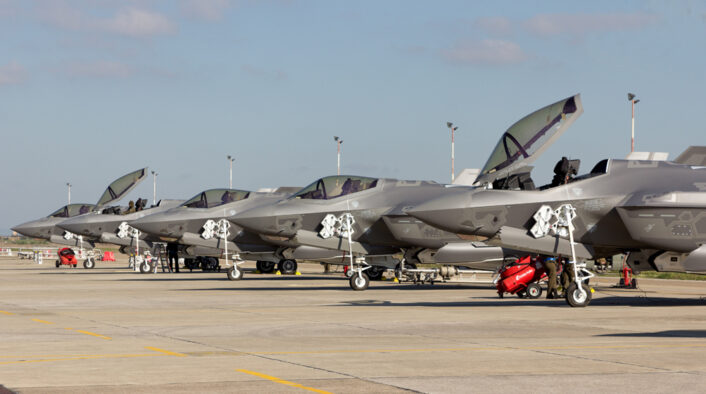
Moreover, while it does not permanently host any Italian frontline squadron, Deci is already been selected as the home to IFTS (International Flight Training School), a joint venture between the Italian Air Force and Leonardo company that was established to provide Advanced/Lead-In to Fighter Training (LIFT) to better prepare Italian and international pilots that will fly on front-line fighters of 4+ and 5th gen, like the Eurofighter Typhoon and the F-35.
[ad_2]
Source link
